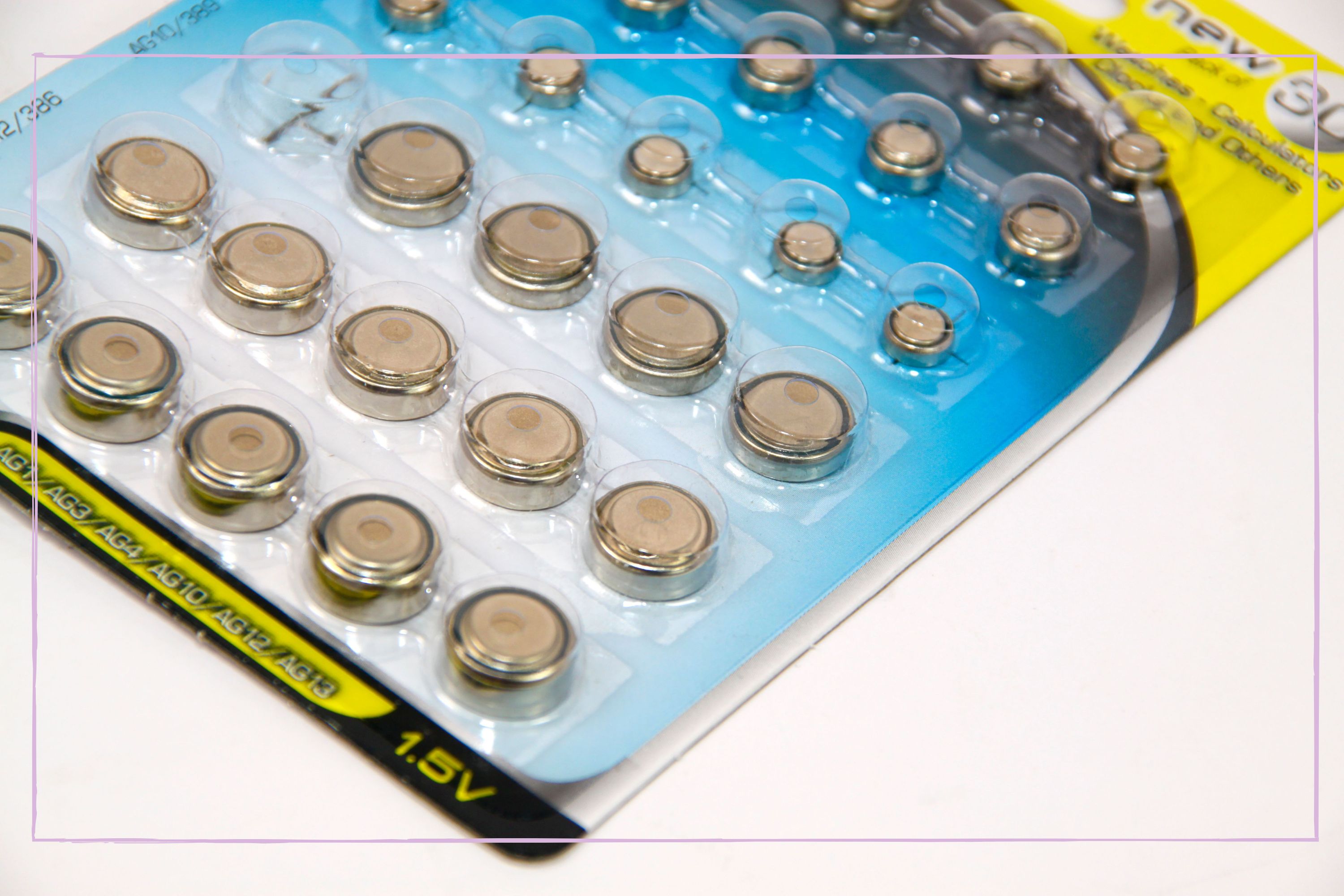How to safely dispose of button batteries as 66% of parents are 'unaware' of their dangers
They pose fire hazards and risks to child safety if not disposed of properly


Parenting advice, hot topics, best buys and family finance tips delivered straight to your inbox.
You are now subscribed
Your newsletter sign-up was successful
Button batteries have disturbing hazards to the safety of your children and household if not disposed of properly. We share how to get rid of these unassuming but dangerous items safely, and how to spot the signs a child has ingested one.
From checking your child is sleeping safely when you first bring them home to ongoing car seat safety as they develop and grow, keeping your child safe is at the forefront of parent's minds. With advice ever evolving and changing, stranger danger is now considered an outdated term when it comes to protecting your kids when they're older and not with you, and you need to teach them an alternative phrase - experts suggest 'tricky person' as an alternative.
Parents will also be aware of safety hazards around the house, although new research shows two thirds of parents aren't aware of the dangers of not disposing of button batteries safely, or what happens when a child ingests one. The findings were published in the Journal of Pediatric Gastroenterology and Nutrition and present concerning gaps in knowledge when it comes to this area of child safety.
This round, coin-sized batteries are used in many children's toys and household products - they're often used to power remote controls, calculators, watches, hearing aids, kitchen items such as scales, and many more. If swallowed, button batteries can become stuck in a child's oesophagus (foodpipe) and result in lifelong problems with speaking, swallowing and eating, and could be fatal.
If these small, unassuming batteries get stuck at any point in its journey beyond a child's mouth, it continues to emit a charge - even if considered to be out of power before being swallowed. The battery reacts with saliva to create a corrosive caustic soda, which burns through internal tissues causing sometimes catastrophic damage and internal bleeding.
Lithium button batteries are particularly dangerous due to their higher voltage - this means they release more energy and are therefore more corrosive. Children aged 1 - 4 are most at risk of putting the batteries in their mouths as they're naturally inquisitive, more likely to place objects in their mouths, and have no understanding of the dangers. However, older children can become aware they emit a charge when placed on their tongue, and put one in their mouth to experience the sensation. To help spot the signs of ingestion, we share a list of possible signs to look out for alongside advice on safe disposal of button batteries.
How to dispose of a button battery safely
You are not permitted to put any type of button battery in your regular waste bin. As they contain such toxic and corrosive chemicals, they need to be disposed of as hazardous waste. Phone your local recycling point and make sure you're taking them to the correct place before you set out to dispose of them.
Parenting advice, hot topics, best buys and family finance tips delivered straight to your inbox.
Remove them from your electricals and recycle them separately - if you're unable to remove them, take the whole item to your local electrical recycling point. One tip to avoid many trips and keep children safe is to set aside a box just for batteries. Make sure this is sealed and out of reach of children. When it becomes full, take the box to your recycling point and dispose of them all in one go.
Some councils offer kerbside collection for batteries and associated small electricals - it's worth checking if your local council provides this option. If batteries go in your regular bin, they can leak flammable substances onto other materials and cause fires. They can even set waste collection lorries on fire, endangering lives and meaning resources are taken up putting out fires that are easily avoidable.
Signs a child has swallowed a button battery
- Drooling
- Feeling or being sick
- Coughing or breathing problems
- Coughing up or vomiting blood
- Stomach pain or pointing to stomach
- Diarrhoea which is dark or bloody
- Throat pain
- Refusal to eat or drink
If you think your child has swallowed a button battery, take them to your nearest Accident and Emergency (A&E) department immediately. Do not give them anything to help them vomit in the belief this will bring the battery back up - this could cause further damage to their internal tissues as the battery makes its way out and make them more ill.
Try to find out what sort of battery has been swallowed and take any packaging you have with you, but only if this information is to hand. Don't waste time hunting for this information if it's not immediately obvious. Batteries inserted into the nose or ear can also cause bleeding from these areas and will require prompt medical treatment.
For more on child safety, we look at whether TikTok is safe for kids, and the same for Instagram. If you are concerned about internet safety, we have some top tips for keeping your kids safe online.

Lucy is a mum-of-two, multi-award nominated writer and blogger with six years’ of experience writing about parenting, family life, and TV. Lucy has contributed content to PopSugar and moms.com. In the last three years, she has transformed her passion for streaming countless hours of television into specialising in entertainment writing. There is now nothing she loves more than watching the best shows on television and sharing why you - and your kids - should watch them.